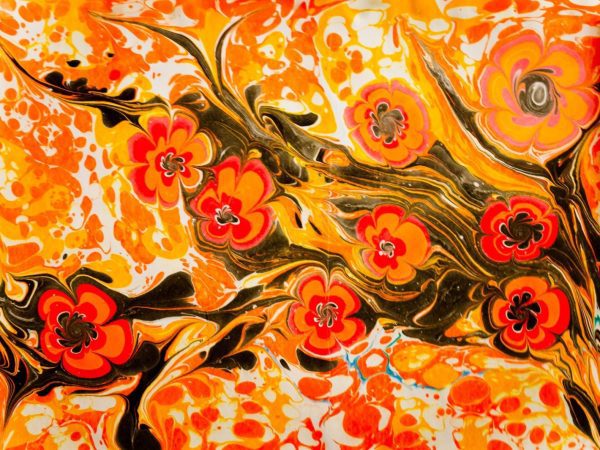
Portugal became the first country to decriminalize all drugs back in 2001 — and it appears to be working. Overdoses, HIV infection, & drug-related crime are all way down.
All drugs (yes, all of them) were decriminalized in Portugal over two decades ago — but this doesn’t mean they’re legal.
The sale of illegal substances is still considered highly illegal and punishable with jail terms and hefty fines.
Additionally, foreigners found guilty of unauthorized use or possession can be expelled from the country.
Summary of Psychedelic Drug Laws in Portugal
- Portugal’s anti-drug law decriminalized all substances in 2001.
- Possession and use are limited to small amounts — the specific quantities vary depending on the substance.
- Convictions are determined after reporting to a special committee — the CDDA.
- Penalties vary according to the case but often involve fines or rehabilitation.
- Convictions for drug trafficking often result in jail sentences.
| Class | Substance | Psychedelics | Penalties |
| I | Opiates, coca derivatives, cannabis, and derivatives | None | Possession for personal use (up to 10 days worth): up to 3 years in prison |
| II | Amphetamines | Hallucinogens | Possession for personal use (up to 10 days worth): up to 3 years in prison |
| III | Preparations with controlled substances | None | Possession for personal use (up to 10 days worth): up to 3 years in prison |
| IV | Tranquilizers and analgesics | None | Possession for personal use (up to 10 days worth): day-fine up to 120 days or up to 1 year in prison |
| V | Precursors: Lysergic acid, ephedrine, ergometrine, ergotamine, fenil-1 propanone-2, isosafrole, 3,4-Metylenodioxyphenyl-2-propanone, N-acetylantranflic acid, piperonal, pseudo-ephedrine, safrole | None | Non-authorized person who possesses these materials knowing they’re used in the manufacturing of illicit drugs: 1-5 years in prison |
| VI | Precursors: Acetone, anthranilic acid, chloridric acid, phenylacetic acid. sulphuric acid, aceticanhydrid, ether eflic, methylethylketone, potassium permanganate, piperidine, toluene | None | A non-authorized person who possesses these materials knowing they’re used in the manufacturing of illicit drugs: 1-5 years in prison |
Are Magic Mushrooms Legal in Portugal?
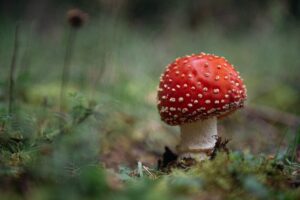
No, psychedelic mushrooms are illegal in Portugal.
The sale of magic mushrooms has been prohibited in the country since 2013, and psilocybin is included in Table IIA of Portugal’s anti-drug law. The country’s drug policies categorize substances in four lists, each grouping them according to the types of drugs and their dangerousness.
There is no specific mention regarding the legality of growing shroom spores, though the law declares drug precursors as illegal.
Some organizations advocate for the magic mushrooms’ potential for medicinal purposes, yet there are no references for ongoing research at a national level.
Do Magic Mushrooms Grow Wild in Portugal?
Yes, magic mushrooms grow wild in Portugal, as rains and woods abound in the northern zones of the country, making the region ideal for finding many different species of mushrooms.
The following are some of the most commonly found shrooms in the country.
A) Gymnopilus luteofolius
Also known as yellow-gilled Gymnopilus, this species is a large and widely distributed one that grows in dense clusters on dead hardwoods and conifers. It has a rusty orange spore print and a bitter taste.
B) Pluteus salicinus
This species is a European psychedelic mushroom that grows primarily on wood. It is an edible mushroom after parboiling. It can be identified by its broadly convex, silver-gray cap and is found across western Europe and Siberia.
C) Psilocybe fimetaria
This mushroom can be quickly identified by its pale reddish-brown cap and long, thick stem. It grows on horse or cow dung, grassy areas, or rich soils, often fruiting in large rings. This species is widely distributed and can be found in Europe and South America.
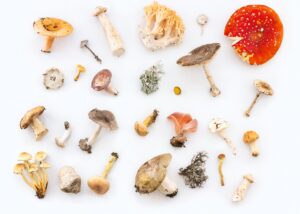
What Are the Medicinal Uses of Shrooms?
Across Europe and North America, there’s a big push for the legalization of mushrooms. This is because substantial research has proved their successful use in psychotherapy for many mental and physical conditions.
For example, conditions such as depression and addiction are being treated with potent psychoactive doses that create profound introspective realizations, helping break bad habits and thoughts.
In addition, magic mushrooms have been proven to help treat PTSD (post-traumatic stress disorder) and existential anxiety by evoking unique experiences that help bring forward new perspectives in life.
This new point of view helps traumatized, or terminally ill patients cope with their new reality and supports them in finding meaning and comfort in the present.
Psilocybin has also shown significant promise as a way to improve creativity and facilitate problem-solving.
Is LSD Legal in Portugal?
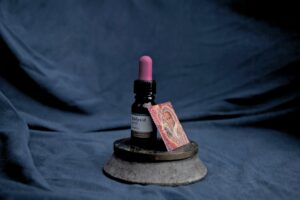
No, LSD is not legal in Portugal.
Under the country’s drug law, LSD (lysergic acid diethylamide) is an illegal substance included in Table IIA. Therefore, possessing a limited amount of LSD or similar drugs can lead you to be reported and charged by the CDDA.
If you are a Portuguese citizen, the Committee can sanction you with a fine, order you to complete rehabilitation treatment, ban you from foreign travel, or make you ineligible for subsidies. Furthermore, you may be deported from the country if you are a foreigner.
Is DMT Legal in Portugal?
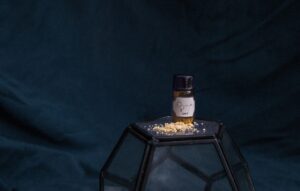
No, DMT is illegal but decriminalized in Portugal.
DMT and analogs like bufotenine are illegal and listed as controlled substances in Table IIA of Portugal’s drug law. Like other restricted substances, there are no criminal charges for those caught in possession of personal amounts, but the substance will likely be confiscated and fines were given out.
Citizens possessing DMT must report to the CDDA, later imposing a sanction. Furthermore, different forms of DMT, such as ayahuasca, bufo toad venom, and changa, are also prohibited.
Is MDMA Legal in Portugal?
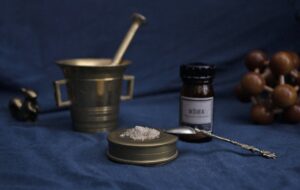
No, MDMA is prohibited but decriminalized in Portugal.
MDMA, also known as ecstasy, is listed in Table IIA too. Possessing MDMA is a punishable offense as per Portuguese law. Therefore, penalties are the same as in the case of magic mushrooms, LSD, and DMT.
Authorities are reviewing MDMA since research indicates it could be helpful in the treatment of post-traumatic stress disorder (PTSD). MDMA is currently under review as a substance with potential medicinal value by many countries.
Is Marijuana Legal in Portugal?
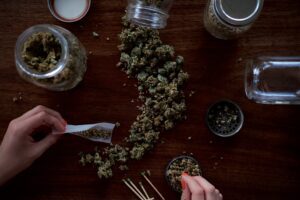
No, marijuana is still illegal (but decriminalized) in Portugal.
Portugal’s anti-drug law includes cannabis and oils, resins, seeds, and other derivatives as controlled substances.
The law permits the possession of up to 25 grams of marijuana leaves or 5 grams of hashish before it becomes a criminal offense. Penalties previously mentioned for other substances also apply, though anecdotal reports indicate that authorities are lenient regarding controls on its use.
Nonetheless, marijuana is also disallowed for recreational purposes. Moreover, in October 2021, the Government introduced a bill limiting the household growth of cannabis to Congress.
In addition, Law n°33/2018 states that medical cannabis can be prescribed when other treatments fail. It also regulates the sales of medical cannabis by drugstores and promotes research by official and private laboratories.
Portugal’s laws and regulations do not mention the legal status of delta 8 THC, delta 9 THC, and delta 10 THC — however, many experts interpret current regulations as stating that all forms of THC or psychoactive components from cannabis are illegal.
Hemp-derived, non-psychoactive cannabinoids such as CBD (cannabidiol), CBC (cannabichromene), CBG (cannabigerol), and CBN (cannabinol) are all legal in Portugal.
Key Takeaways: What’s The Future of Psychedelics in Portugal?
Portugal enacted groundbreaking new drug policies in response to a significant epidemic of addiction and violence in the early 2000s, and it’s been largely effective. Drug-related crime, overdose deaths, and HIV infection have all sharply declined since these laws have been enacted.
While it’s true that all drugs are decriminalized here, it’s important to note that this doesn’t make drug use legal. You can still get fined for using drugs, and foreigners will likely be deported.
Selling drugs or getting caught in possession of large quantities can still result in jail sentences.
